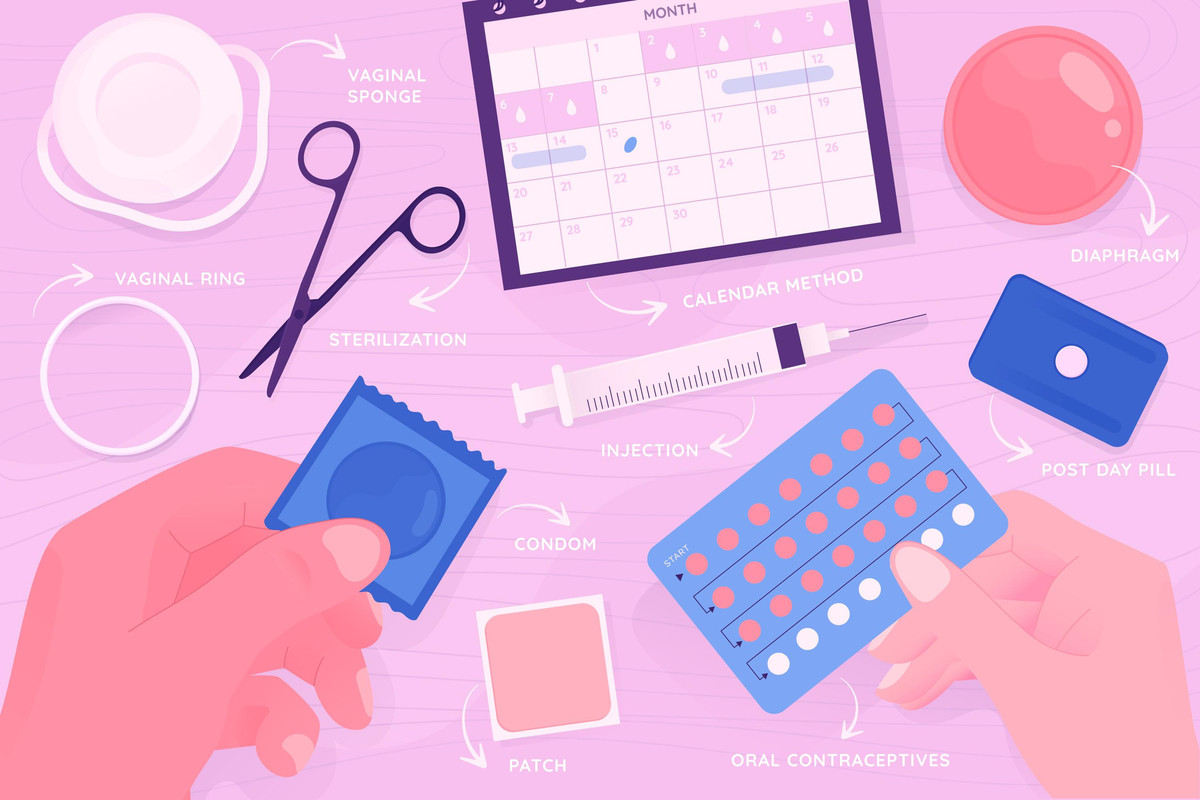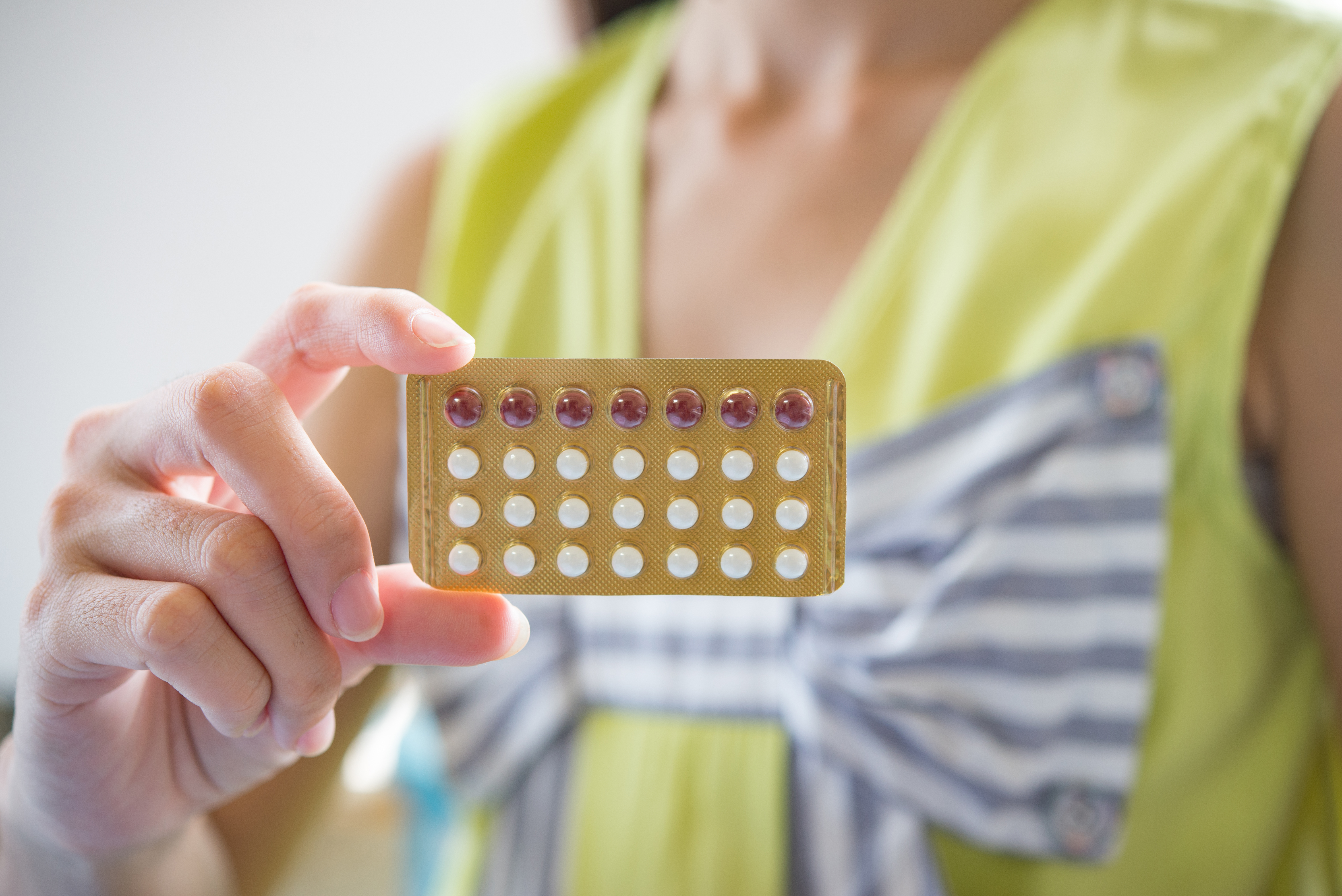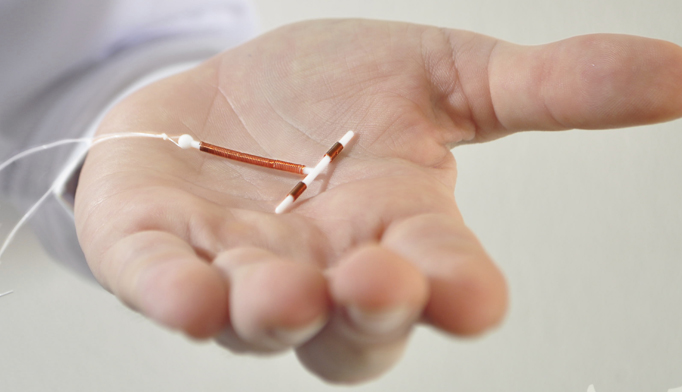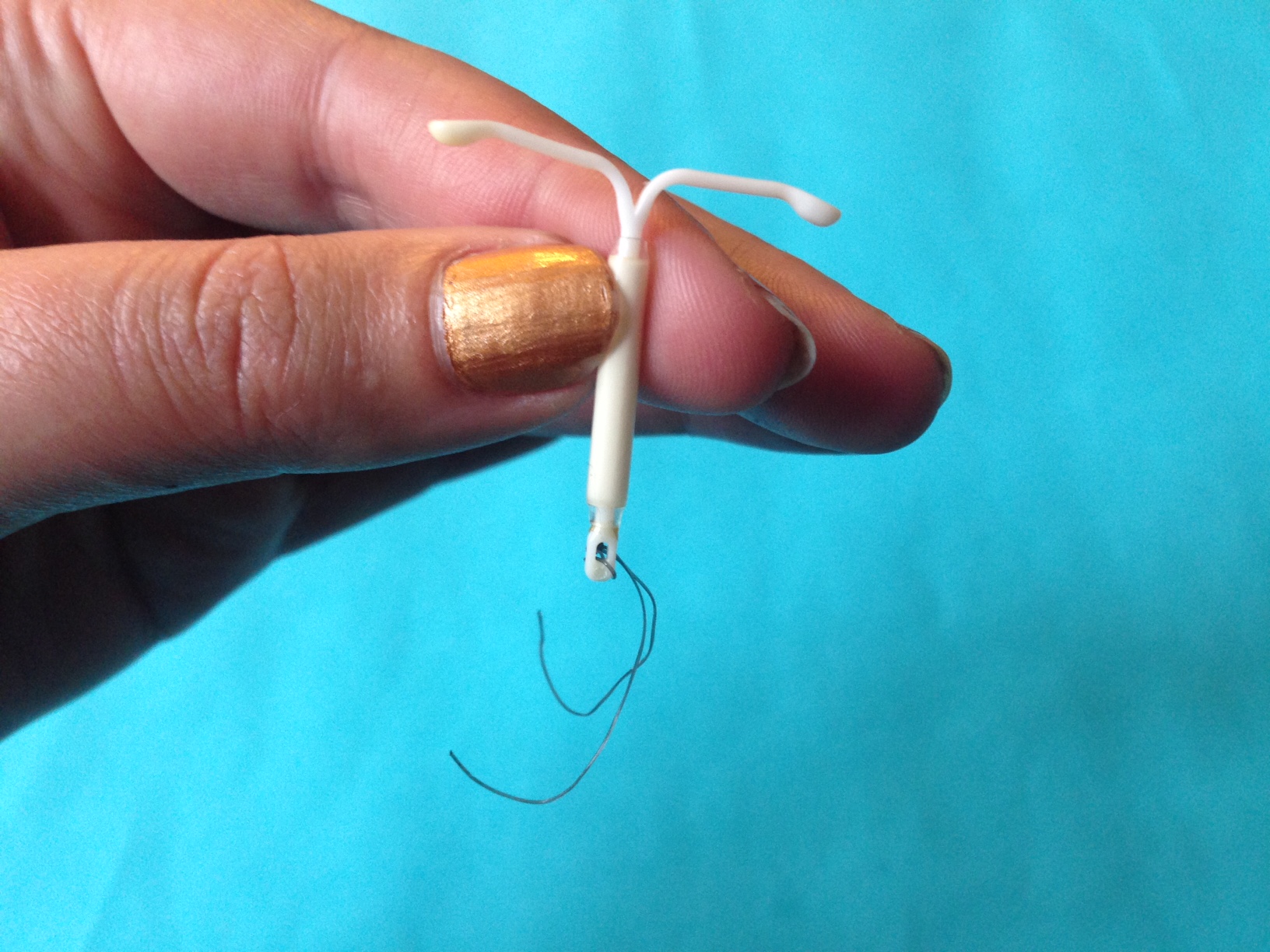Here Are 7 Types Of Birth Control In Malaysia & How Much They Cost
If you are going to be sexually active, get protection!
Contraception, or birth control, is sadly still a taboo topic in Malaysia and people often avoid the conversation until an accident happens
However, it doesn't have to be that way. We need to talk about contraception because it is crucial not only for safe sex and preventing pregnancy, but also for women who deal with really bad menstrual issues.
Plus, there is no such thing as a birth control method that is perfect for everyone.
You will need to find one that fits your life and consider everything from convenience, comfort, effectiveness, cost, and side effects that may happen specifically only to you (or your partner).
1. Condoms
A condom is a rubber sheath that is worn over an erect penis and physically acts as a barrier to prevent sperm from entering the vagina, thus preventing pregnancy.
It is the only type of contraceptive known to protect against sexually transmitted infections (STIs) as it prevents skin contact and exchange of body fluids during intercourse.
Besides having no side effects (other than if you are allergic to latex), condoms are the most easily available contraceptive - they are available in pharmacies and convenience stores and do not need a prescription to be used.
Drawbacks: It may slip off or break during intercourse.
Effectiveness: 97% if used correctly (Although failure rates are known to be higher in first year of use because people often don't know how to put it on correctly. Don't be shy, watch a tutorial!)
Cost: RM6 to RM15 for a box of three
Common brands in Malaysia: Durex, ONE, Playboy, Okamoto
Note: Other barrier methods such as female condoms and cervical diaphragms also exist. However, they are not readily available in Malaysia.
2. Oral contraceptive pills (OCP)
Also known as birth control pills, these pills are made out of hormones higher than a woman's normal body levels. OCPs have to be taken daily to be effective. The constant intake of hormones will prevent ovulation (the release of the ovum) throughout the menstrual cycle and thus prevent pregnancy.
There are two types of pills - the combined (estrogen and progesterone) and the progesterone-only pills.
Both types can be bought over-the-counter from a pharmacist without a prescription. Ideally though, you should seek medical advice on both the hormones before use because everyone has different contraindications, e.g. people with high blood pressure cannot take pills with estrogen in it.
OCPs are often advised for women who not only need birth control, but also if they have heavy and painful periods as these pills can make periods become more regular, shorter, less heavy, and less painful.
These pills can be used to treat acne too. However, it may also worsen the condition in some people, so do seek medical advice.
Drawbacks: Users have to take the pill at almost the same time every single day. It doesn't protect against STIs. It can cause weight gain and blood clotting issues (venous thromboembolism).
Effectiveness: 91% if used correctly
Cost: RM30 to RM60 for a box for one month
Common brands in Malaysia: Diane, Mirogynon, Regulon, Rigevidon, Yasmin, Yaz
3. Hormonal injection
The hormonal injection is a progestin-based (synthetic progesterone) shot, and the brand name Depo-Provera has become synonymous with this type of birth control.
You will have to go to a government or private clinic to be prescribed and administered this contraceptive. It lasts for three months, which means you will be taking about four shots a year.
The injected progesterone typically works by suppressing ovulation (to prevent the release of an egg), thinning out the lining of the uterus (to lessen the chance of implantation), and also thickening cervical mucus (to stop sperm from entering the uterus), which altogether makes getting pregnant close to impossible.
These injections are usually prescribed to women who don't want to take pills every day or can't take estrogen for whatever reason.
Besides preventing unwanted pregnancies, this injection is also often prescribed to women with heavy and painful periods because it can help reduce menstrual cramps and flow.
Drawbacks: While reducing menstrual pain and flow, progesterone might cause irregular bleeding (also known as spotting). Long term use of progesterone-only birth control may also decrease bone density. It does not protect against STIs. It is also known to cause weight gain.
Effectiveness: 96%
Cost: RM36 at government clinics, RM80 to RM90 at private clinics
Duration of effect: Three months
Common brands in Malaysia: Depo-Provera
4. Hormonal implant
Similar to the injection, implants will introduce progestin into the body, but in the form of a 4cm plastic rod that is inserted underneath the skin of your arm.
The implant, often known as the brand Implanon, will release small amounts of progestin over three years.
This contraceptive has similar benefits and risks as the other progesterone-only contraceptives, such as the Depo-Provera injection and the Mirena intrauterine device.
It works by preventing ovulation, thinning out the uterine lining, and thickening cervical mucus. It is also given to women who can't take estrogen or have heavy and painful periods.
You will have to go to a clinic to be prescribed and administered this implant.
Drawbacks: Upfront payment is high, but it is considered affordable over time because it lasts three years. Can cause irregular bleeding in the first few months of use and decreased bone density in the long term. It does not protect against STIs.
Effectiveness: 99%
Cost: RM600 at government clinics, RM800 to RM900 at private clinics
Duration of effect: Three years
Common brands in Malaysia: Implanon
5. Copper intrauterine device (IUD)
The IUD is a small, T-shaped plastic device that is wrapped in copper. Copper has a direct spermicidal effect on sperm entering the uterus and prevents fertilisation from occurring.
This birth control does not contain hormones, so you will still get your periods, but they may be heavier and more painful in the first few months.
The IUD is a type of long-term contraception that can be left in the uterus from three to five years. If you are ready to have a baby, the device can also be removed earlier.
You will have to visit a specialised doctor, a gynaecologist, to insert the IUD.
Drawbacks: Insertion may be painful. May cause heavier and more painful periods in first few months. There is also risk of pelvic infection. It does not protect against STIs. It is possible for the device to be suddenly expelled (you will have to check once a month if the strings are still protruding from your cervix).
Effectiveness: 99%
Cost: RM80 to RM110 at government clinics, RM500 to RM600 at private clinics
Duration of effect: Three to five years
Common brands in Malaysia: Multiload, Mona Lisa, Nova-T
6. Hormonal intrauterine device (IUD)
Instead of copper, the hormonal IUDs are wrapped with the hormone progestin. As mentioned above, progestin prevents pregnancies by stopping ovulation, thinning the uterus lining, and thickening cervical mucus.
The hormonal IUD offers long-term contraceptive protection for up to five years and is similar with the other progesterone-only contraceptives - it can decrease menstrual bleeding and pain for those suffering from heavy, painful periods.
Drawbacks: Upfront payment is high. Insertion may be painful. It can cause irregular bleeding in the first few months of use and cause decreased bone density in the long term. There is also risk of pelvic infection. It doesn't protect against STIs and it is also possible for the device to be suddenly expelled (you will have to check once a month if the strings are still protruding from your cervix).
Effectiveness: 99%
Cost: RM800 to RM1,100 at private clinics
Duration of effect: Five years
Common brands in Malaysia: Mirena
7. Emergency morning-after pills
A dose of emergency contraception comes in the form of one or two pills, and these pills contain many more times the amount of hormones found in regular OCP pills, which immediately prevents ovulation, and thus prevent an unwanted pregnancy.
Morning-after pills can be bought over-the-counter from pharmacies without a prescription. However, due to its high volume of hormones, these pills should only be taken in event of emergency after unplanned, unprotected sex. The high volume of hormones disrupts a woman's menstrual cycle and should not be used regularly.
The pills have to be taken within 72 hours of unprotected sex - the more immediate, the more effective it is.
Effectiveness: Effective only within three days after unprotected sex
Cost: RM5 to RM20
Common brands in Malaysia: Escapelle, Postinor-2
Seek professional medical advice if you are interested in any of these contraceptive methods
There is still a lot of information that you will need to know about the side effects, methods of usage, and insertion procedures for them.
The prices listed above for government clinics are obtained from the National Population and Family Development Board (LPPKN) website, and prices for the private clinics are quotes obtained over calls to a few private clinics around Klang Valley, as well as estimates from the Reproductive Rights Advocacy Alliance Malaysia (RRAAM), so prices might differ from the ones you find.
It is also important to note that while LPPKN clinics offer more affordable options, they will only provide contraception to married couples. Single individuals may seek contraception from LPPKN clinics if they agree to additional counselling.
Traditional methods such as abstinence, withdrawal, and the rhythm method (only having sex outside of a woman's fertile window in her menstruation cycle) were also not elaborated here because if you are going to be sexually active, get real protection!
The information provided is for educational and communication purposes only and it should not be construed as personal medical advice. Information published in this article is not intended to replace, supplant or augment a consultation with a health professional regarding the reader's own medical care.
A Sarawakian gynaecologist invented a new type of condom — a unisex condom — to address the drawbacks of regular condoms:








